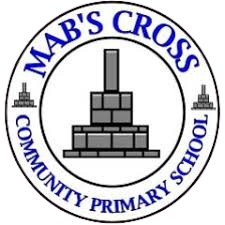Physical Education
MAB’S CROSS PRIMARY SCHOOL
Physical Education
INTENT
At Mab’s Cross Primary, we believe PE is one of the main driving factors for our pupil’s physical and mental well-being. Children are entitled to a rich, broad and balanced PE curriculum. Through PE, children should develop behaviour and attitudes that will benefit them throughout school life and beyond.
A high-quality physical education curriculum inspires all pupils to succeed and excel in competitive sport and other physically demanding activities. It should provide opportunities for pupils to become physically confident in a way that supports their health and fitness. Opportunities to compete in sport and other activities build character and help to embed values such as fairness and respect. To achieve this, our curriculum is designed around The PE Hub, a multi-sports programme that develops the children’s experience of a broad range of activities through curriculum PE time, including gymnastics, dance, games, outdoor Education, athletics, and swimming.
This approach is designed to ensure that all children, regardless of their abilities, can engage in meaningful and progressively challenging skills development that can be applied across to a range of games. Children learn to win and lose, support others and be supported, showing sportsmanship and good character. They also experience working as part of a team towards a common goal as well as individually improving their performances. Regular assessment of each unit ensures pupils know, apply and understand the matters, skills and processes specified in the relevant programme of study.
We strive to educate children not just about their physical abilities, but also their health, fitness and diet, so that they can be active and healthy individuals and have a good understanding of physical literacy. Children enjoy being active, choosing to engage in physical activity and sport in their own time.
The importance of children’s wider active experiences around school is promoted and carefully planned. Children have access to a range of experiences through our pupil offer, try different things to hopefully spark an interest in new sports or activities. Children are encouraged to be active at breaks and lunch times with a range of equipment, zones and play leaders.
IMPLEMENTATION
We provide a broad and balanced PE curriculum that includes a range of activities such as Netball, Rugby, Dance, Rounders and Swimming. PE is taught through weekly lessons, covering both indoor and outdoor disciplines. We have a bespoke curriculum map using the structured units of work from The PE Hub, which builds knowledge and skills progressively from EYFS to Year 6.
In EYFS, physical development is supported through targeted provision and a discrete PE lesson that focuses on fundamental skills such as balance, coordination, and movement. In KS1, children build on these foundations and begin to engage in structured games and explore basic tactics. In KS2, children refine and apply their skills in more complex and competitive contexts and develop their ability to evaluate performance and set goals. PE is fully inclusive and adapted where necessary to ensure every child can access and succeed.
This consistency of approach allows children to revisit skills and develop them to the best of their potential. To further ensure consistency, a specialist HLTA delivers PE in some year groups, and supports with CPD in others: having attended numerous training courses delivered by Wigan Athletic, Wigan Warriors and the local cluster of schools through our School Games Organiser.
Swimming lessons are delivered in Year 5, where children are taught to swim competently and confidently over at least 25 metres, use a range of strokes effectively, and perform safe self-rescue in water-based situations. Swimming groups are flexible and reviewed half-termly, ensuring that children who need longer to reach this standard receive the time and the support they need.
Assessment is ongoing and supports teachers in planning and tracking progress, using The PE Hub assessment tool. Each year group and different demographics are tracked using The PE Hub reporting tool, informing future lessons and strategic planning for the subject.
Enrichment opportunities include extra-curricular clubs, inter- and intra-school competitions, and enrichment experiences such as taster sessions in alternative activities. Leadership roles such as Sports Leaders give children responsibility and ownership. Daily initiatives like the playground zones help to increase overall activity levels across the school. Lunchtime enrichment is offered through skills wise groups, where more reluctant learners and those that do not, perhaps, get the same sporting chances as others are given a range of activities. This also increases the number of children who are active and participating in sport/activity each day.
School also has close links with Wigan Cricket Club, Wigan Warriors, Wigan tennis club and BeWell Wigan, which allow children to access a range of facilities close to school, specialist coaching for the children, and highlight the range of sports or activities that children can take part in outside of school.
IMPACT
Impact is assessed through pupil progress, engagement, and wider personal development.
Teachers use formative and summative assessment to track skills, knowledge, and effort, supported by The PE Hub assessment and reporting tool. At the end of each unit, children are judged as working towards, meeting, or exceeding age-related expectations.
In swimming, children’s competency is improving, with children who struggle accessing targeted support and more sessions.
Pupil voice is gathered though School Council surveys and subject monitoring to ensure inclusive and enjoyable lessons. PE also supports teamwork, communication, and leadership, underpinned by values such as respect and resilience, which are promoted in lessons, clubs and competitions.
We expect pupils to reflect on their progress, show resilience and take pride in personal achievements. Participation in extracurricular clubs and events is tracked, with a focus on engaging less active pupils and those with SEND or from disadvantaged backgrounds.
We celebrate pupil success in assemblies and in our newsletter, helping to build a positive culture of physical activity. Our children leave school prepared to stay active, healthy, and confident in their physical abilities.
